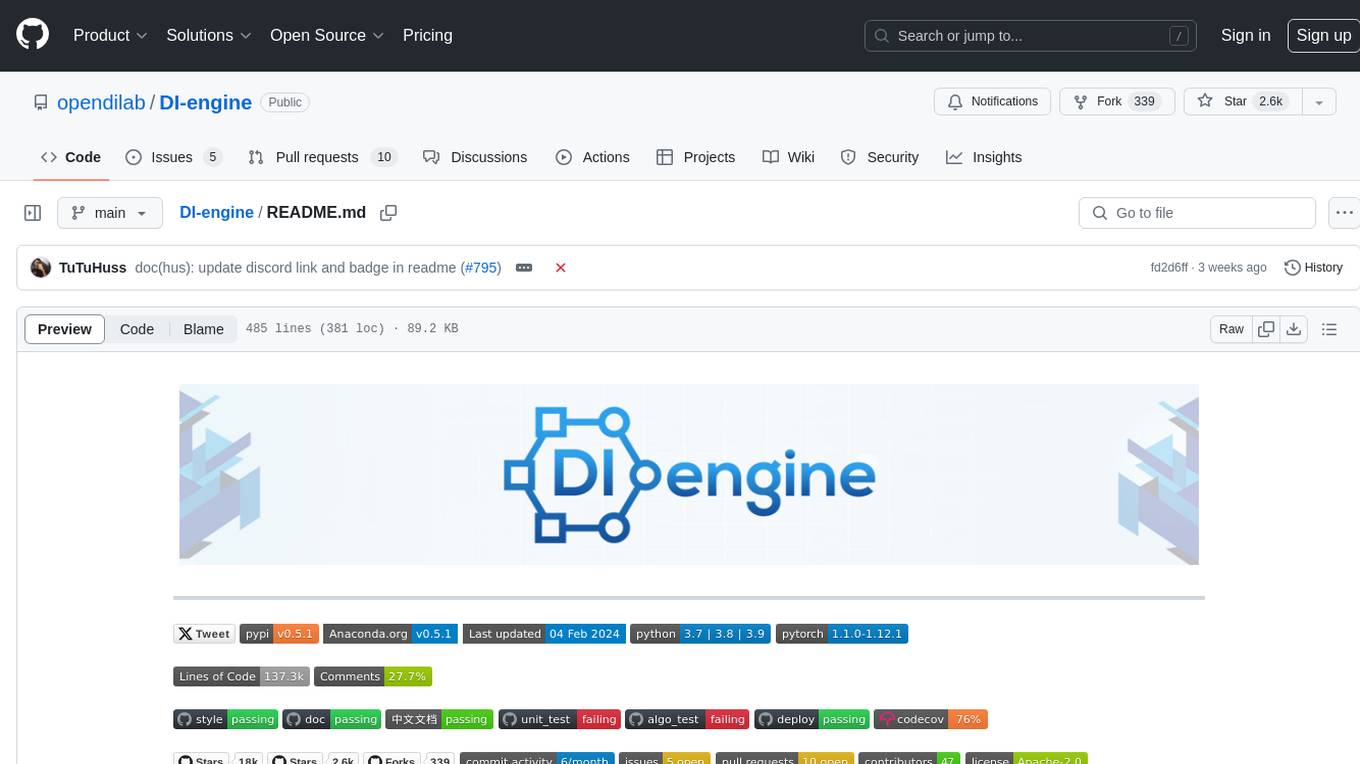
widgets
Desktop widgets for windows. built with vue3
Stars: 228
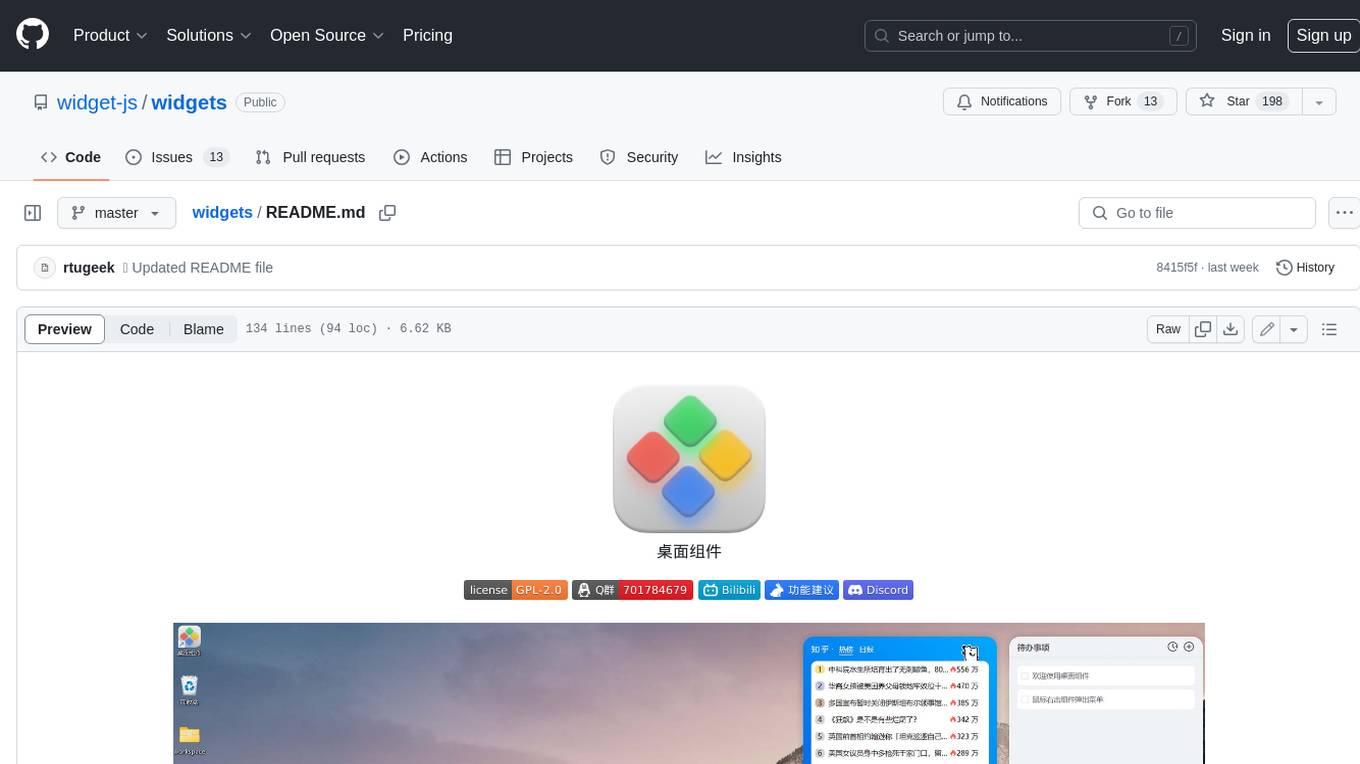
Widgets is a desktop component front-end open source component. The project is still being continuously improved. The desktop component client can be downloaded and run in two ways: 1. https://www.microsoft.com/store/productId/9NPR50GQ7T53 2. https://widgetjs.cn After cloning the code, you need to download the dependency in the project directory: `shell pnpm install` and run: `shell pnpm serve`
README:
这是桌面组件前端开源组件,项目还在持续完善中
widgets
├── src
│ ├── components // 常用Vue组件
│ ├── views //
│ ├── widgets // 桌面组件文件
│ │ ├── countdown // 每个桌面组件一个文件夹
│ │ │ ├── XXWidget.vue // 桌面小组件
│ │ │ ├── XXConfig.vue // 小组件配置页面
│ │ │ └── XXView.vue // 小组件页面
│ │ └── ...
│ └── index.ts
├── .gitignore
├── package.json
├── README.md
└── tsconfig.json
#克隆代码
git clone https://github.com/widget-js/widget.git
pnpm installpnpm serve| 默认组件包 | https://github.com/widget-js/widgets |
|---|---|
| 待办事项 |  |
| 轮播相册 |  |
| 生日列表 |  |
| 倒计时1 |  |
| 倒计时2 |  |
| 灵动通知 |  |
| 打工进度 |  |
| 时间进度 |  |
| 剪切板组件包 | https://github.com/rtugeek/clipboard |
|---|---|
| 剪切板 | 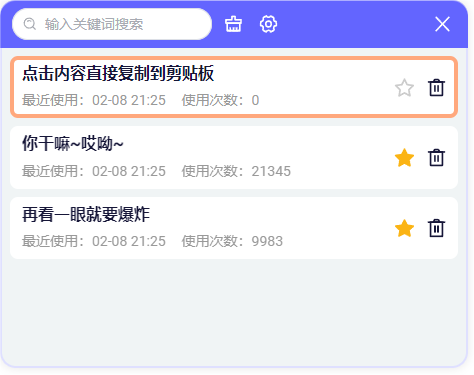 |
| 快捷搜索 |  |
| 天气组件包 | https://github.com/rtugeek/weather |
|---|---|
| 2x2 | 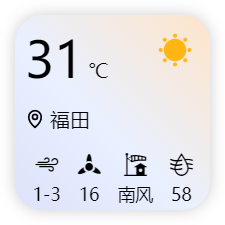 |
| 4x2 | 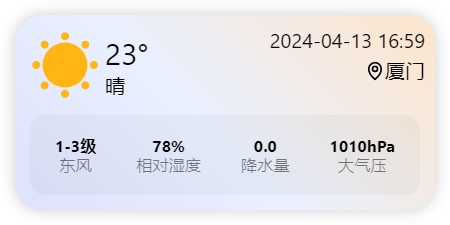 |
| 4x4 |  |
| 工具类组件包 | https://github.com/rtugeek/utilities |
|---|---|
| 键盘演示 |  |
| 喝水提醒 |  |
| 热点组件包 | https://github.com/widget-js/hotspot |
|---|---|
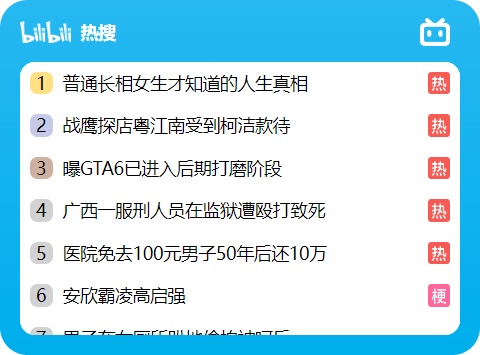 |
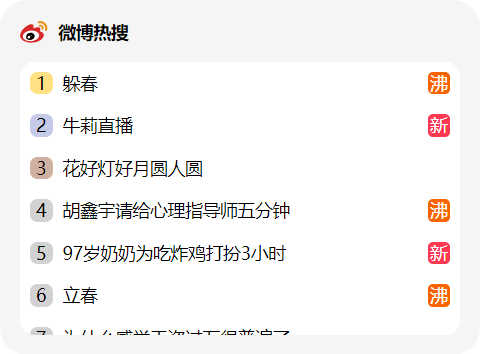 |
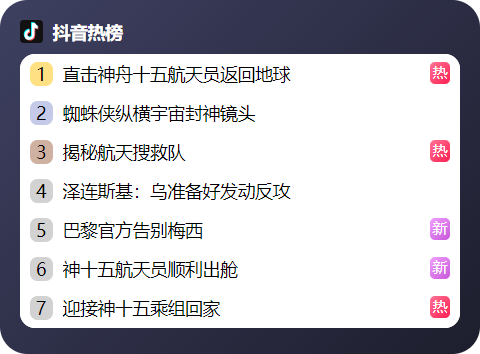 |
 |
| 时钟组件包 | https://github.com/rtugeek/clock |
|---|---|
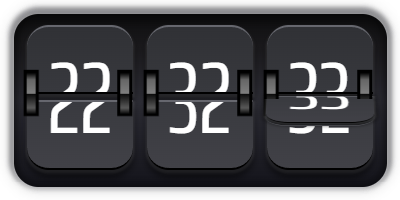 翻页时钟 |
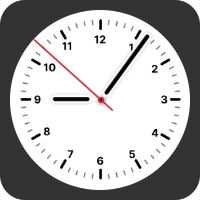 时钟 |
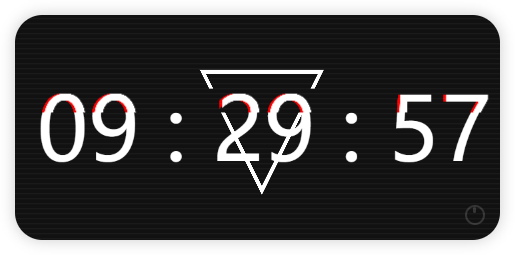 故障时钟 |
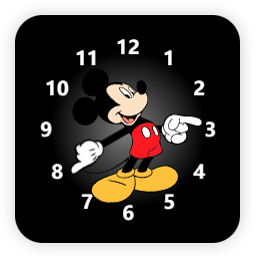 米奇时钟 |
For Tasks:
Click tags to check more tools for each tasksFor Jobs:
Alternative AI tools for widgets
Similar Open Source Tools

widgets
Widgets is a desktop component front-end open source component. The project is still being continuously improved. The desktop component client can be downloaded and run in two ways: 1. https://www.microsoft.com/store/productId/9NPR50GQ7T53 2. https://widgetjs.cn After cloning the code, you need to download the dependency in the project directory: `shell pnpm install` and run: `shell pnpm serve`
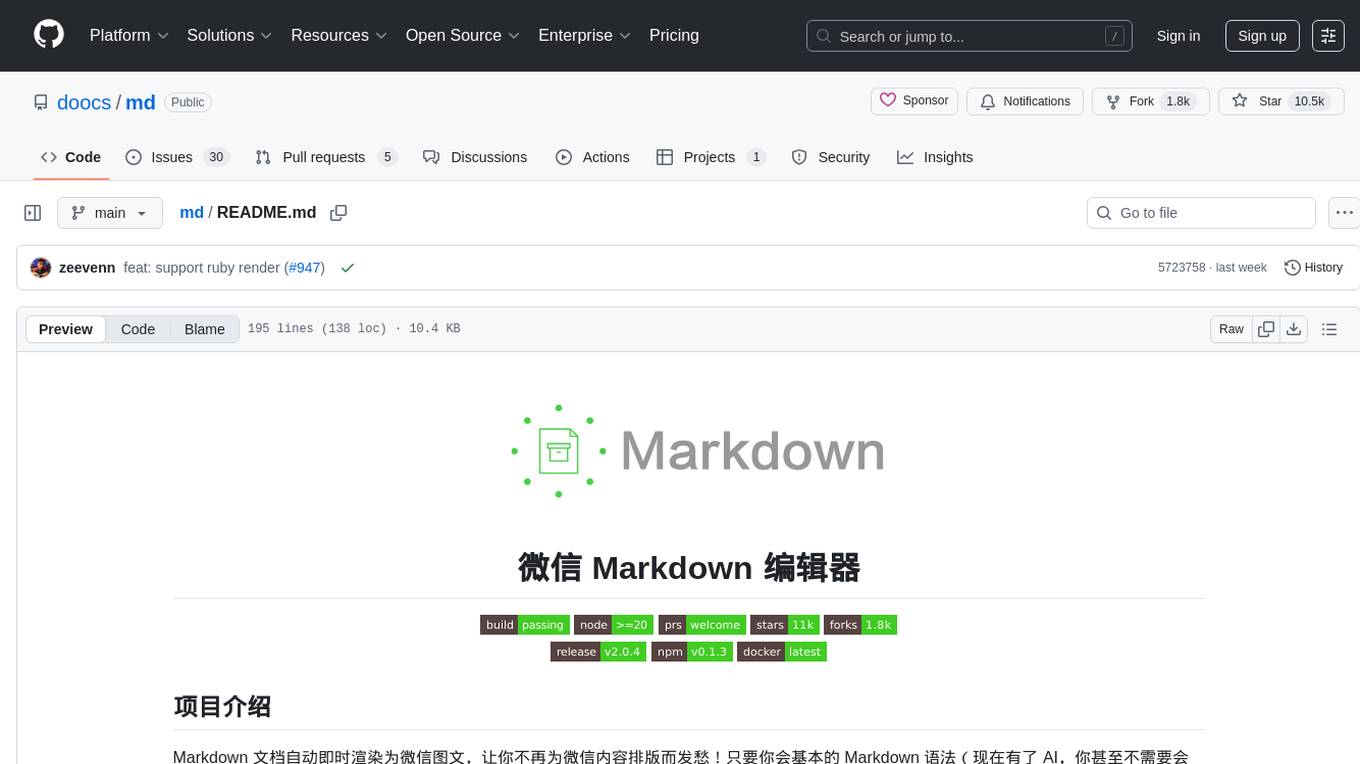
md
The WeChat Markdown editor automatically renders Markdown documents as WeChat articles, eliminating the need to worry about WeChat content layout! As long as you know basic Markdown syntax (now with AI, you don't even need to know Markdown), you can create a simple and elegant WeChat article. The editor supports all basic Markdown syntax, mathematical formulas, rendering of Mermaid charts, GFM warning blocks, PlantUML rendering support, ruby annotation extension support, rich code block highlighting themes, custom theme colors and CSS styles, multiple image upload functionality with customizable configuration of image hosting services, convenient file import/export functionality, built-in local content management with automatic draft saving, integration of mainstream AI models (such as DeepSeek, OpenAI, Tongyi Qianwen, Tencent Hanyuan, Volcano Ark, etc.) to assist content creation.
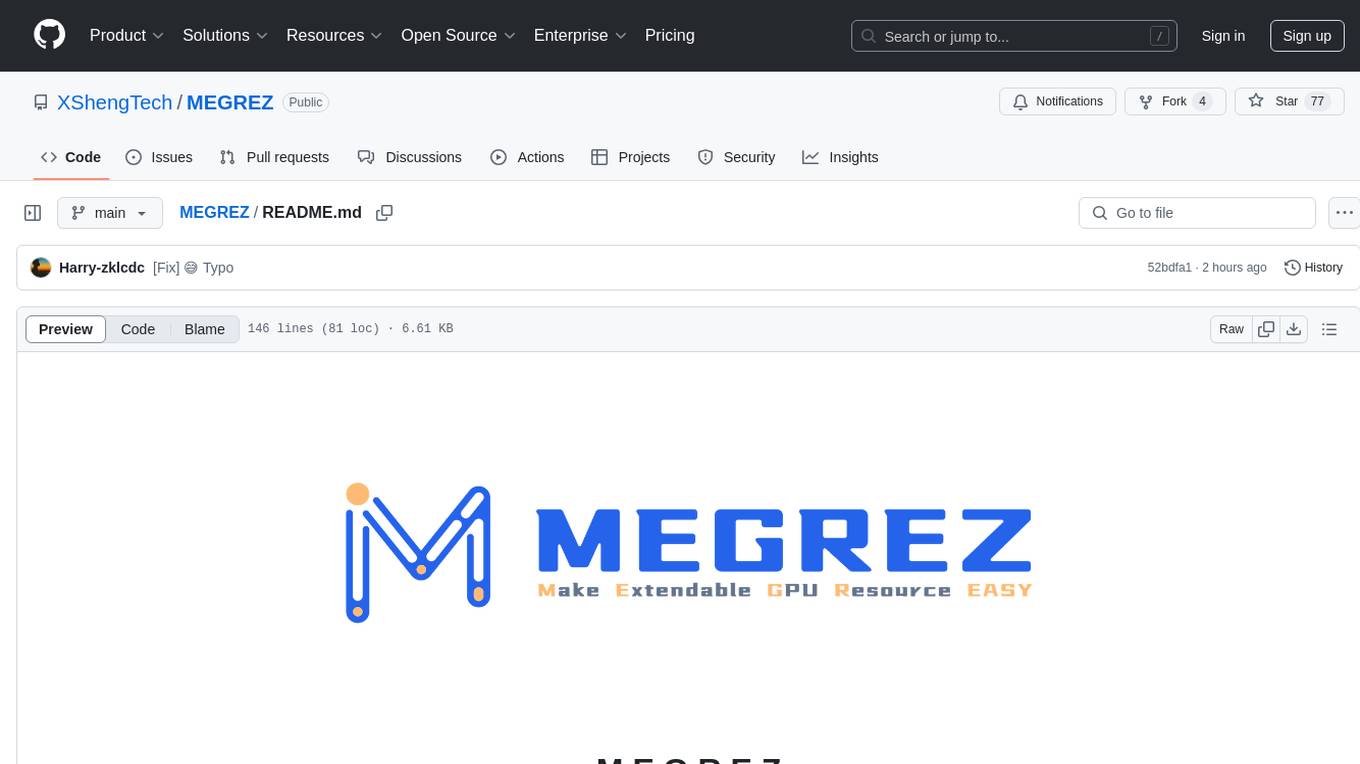
MEGREZ
MEGREZ is a modern and elegant open-source high-performance computing platform that efficiently manages GPU resources. It allows for easy container instance creation, supports multiple nodes/multiple GPUs, modern UI environment isolation, customizable performance configurations, and user data isolation. The platform also comes with pre-installed deep learning environments, supports multiple users, features a VSCode web version, resource performance monitoring dashboard, and Jupyter Notebook support.
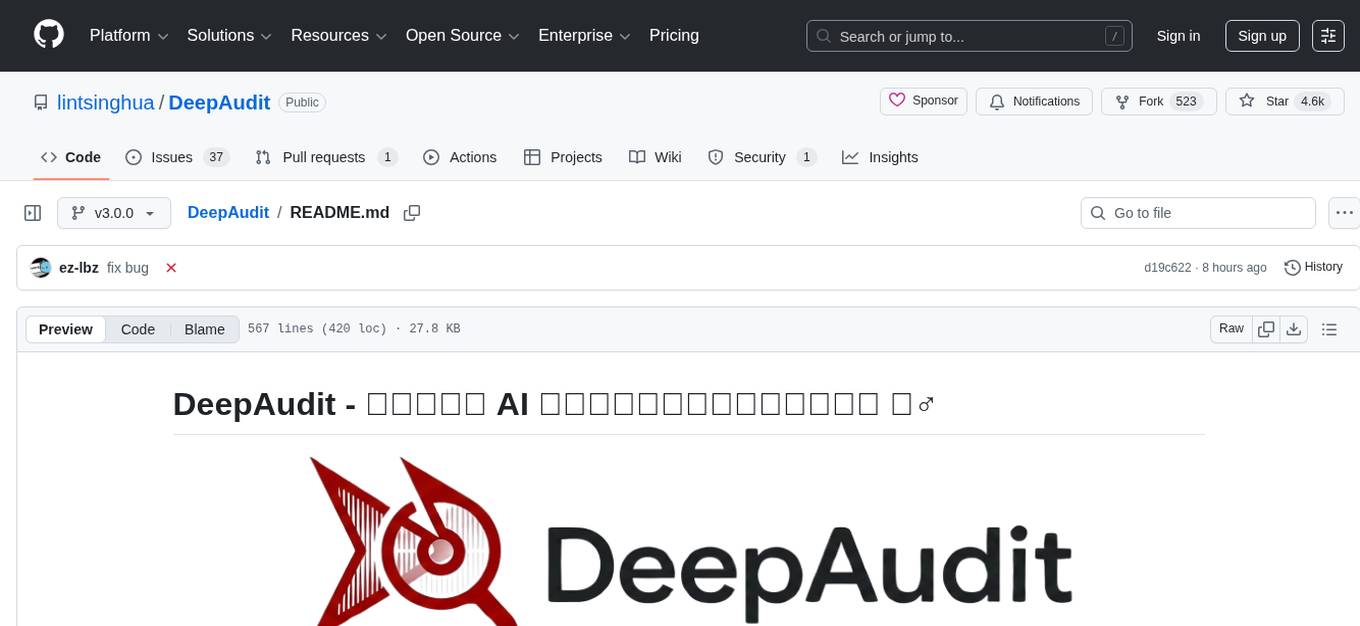
DeepAudit
DeepAudit is an AI audit team accessible to everyone, making vulnerability discovery within reach. It is a next-generation code security audit platform based on Multi-Agent collaborative architecture. It simulates the thinking mode of security experts, achieving deep code understanding, vulnerability discovery, and automated sandbox PoC verification through multiple intelligent agents (Orchestrator, Recon, Analysis, Verification). DeepAudit aims to address the three major pain points of traditional SAST tools: high false positive rate, blind spots in business logic, and lack of verification means. Users only need to import the project, and DeepAudit automatically starts working: identifying the technology stack, analyzing potential risks, generating scripts, sandbox verification, and generating reports, ultimately outputting a professional audit report. The core concept is to let AI attack like a hacker and defend like an expert.
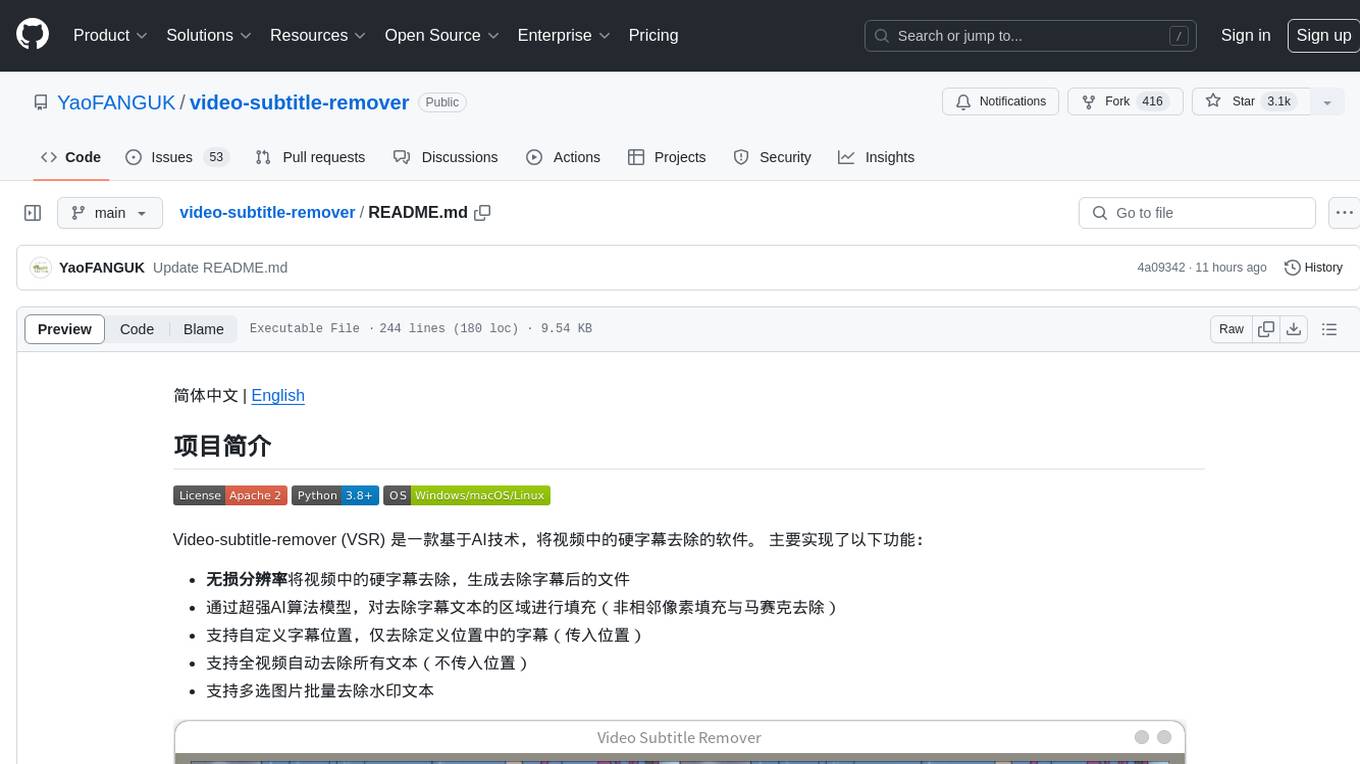
video-subtitle-remover
Video-subtitle-remover (VSR) is a software based on AI technology that removes hard subtitles from videos. It achieves the following functions: - Lossless resolution: Remove hard subtitles from videos, generate files with subtitles removed - Fill the region of removed subtitles using a powerful AI algorithm model (non-adjacent pixel filling and mosaic removal) - Support custom subtitle positions, only remove subtitles in defined positions (input position) - Support automatic removal of all text in the entire video (no input position required) - Support batch removal of watermark text from multiple images.
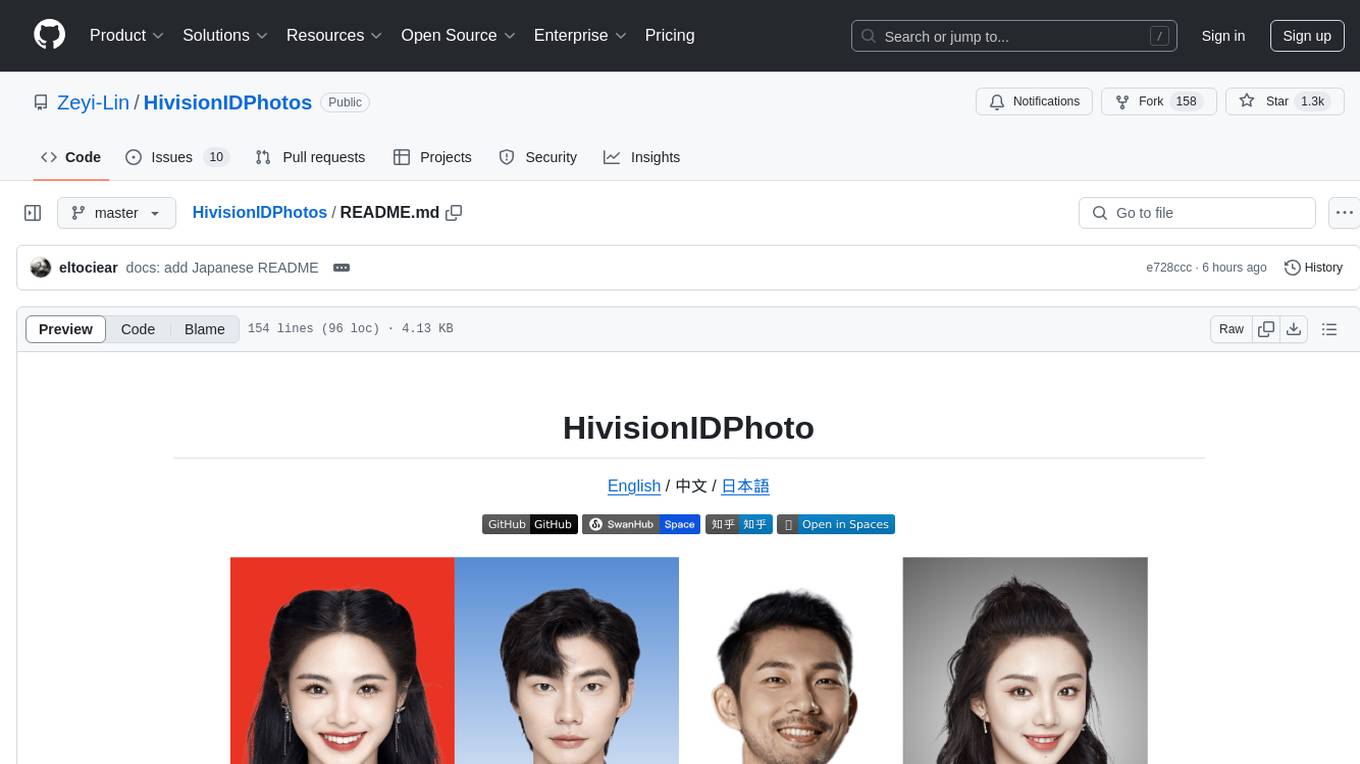
HivisionIDPhotos
HivisionIDPhoto is a practical algorithm for intelligent ID photo creation. It utilizes a comprehensive model workflow to recognize, cut out, and generate ID photos for various user photo scenarios. The tool offers lightweight cutting, standard ID photo generation based on different size specifications, six-inch layout photo generation, beauty enhancement (waiting), and intelligent outfit swapping (waiting). It aims to solve emergency ID photo creation issues.
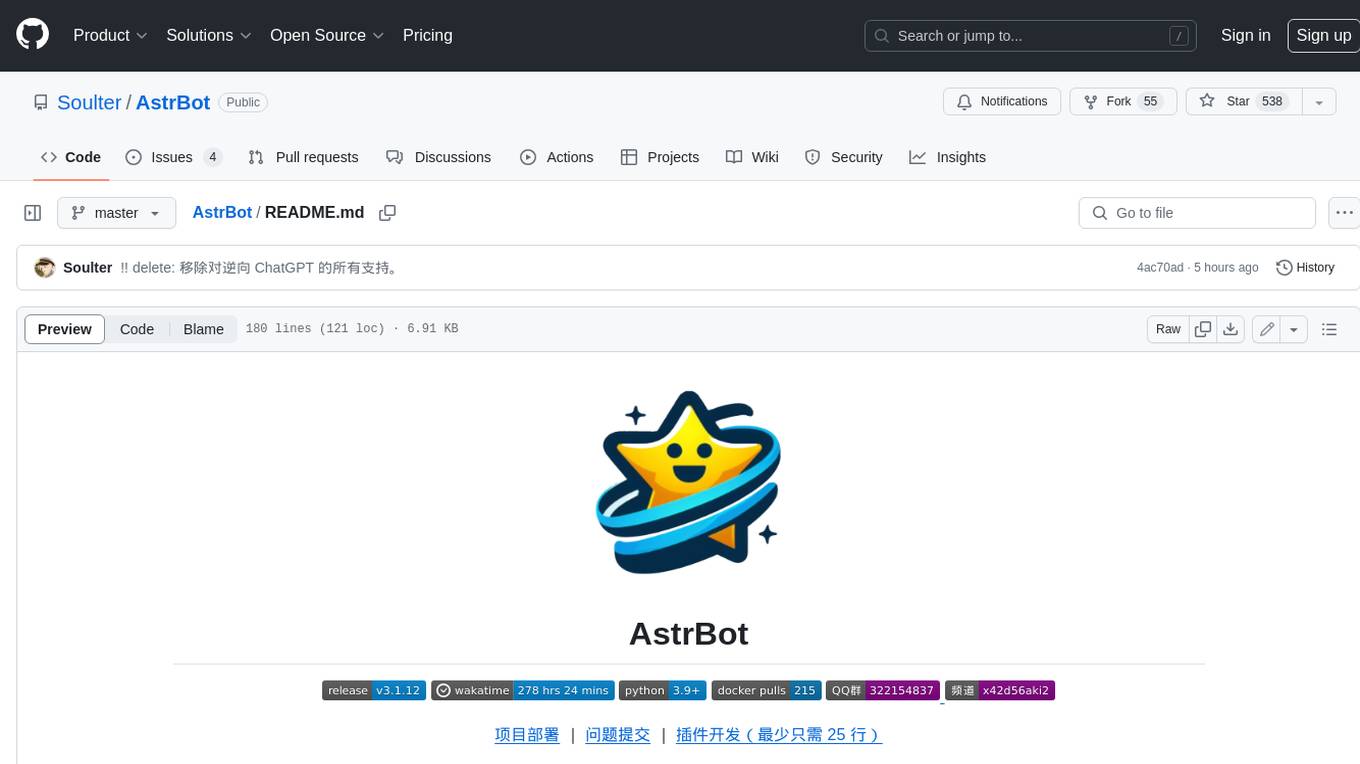
AstrBot
AstrBot is a powerful and versatile tool that leverages the capabilities of large language models (LLMs) like GPT-3, GPT-3.5, and GPT-4 to enhance communication and automate tasks. It seamlessly integrates with popular messaging platforms such as QQ, QQ Channel, and Telegram, enabling users to harness the power of AI within their daily conversations and workflows.
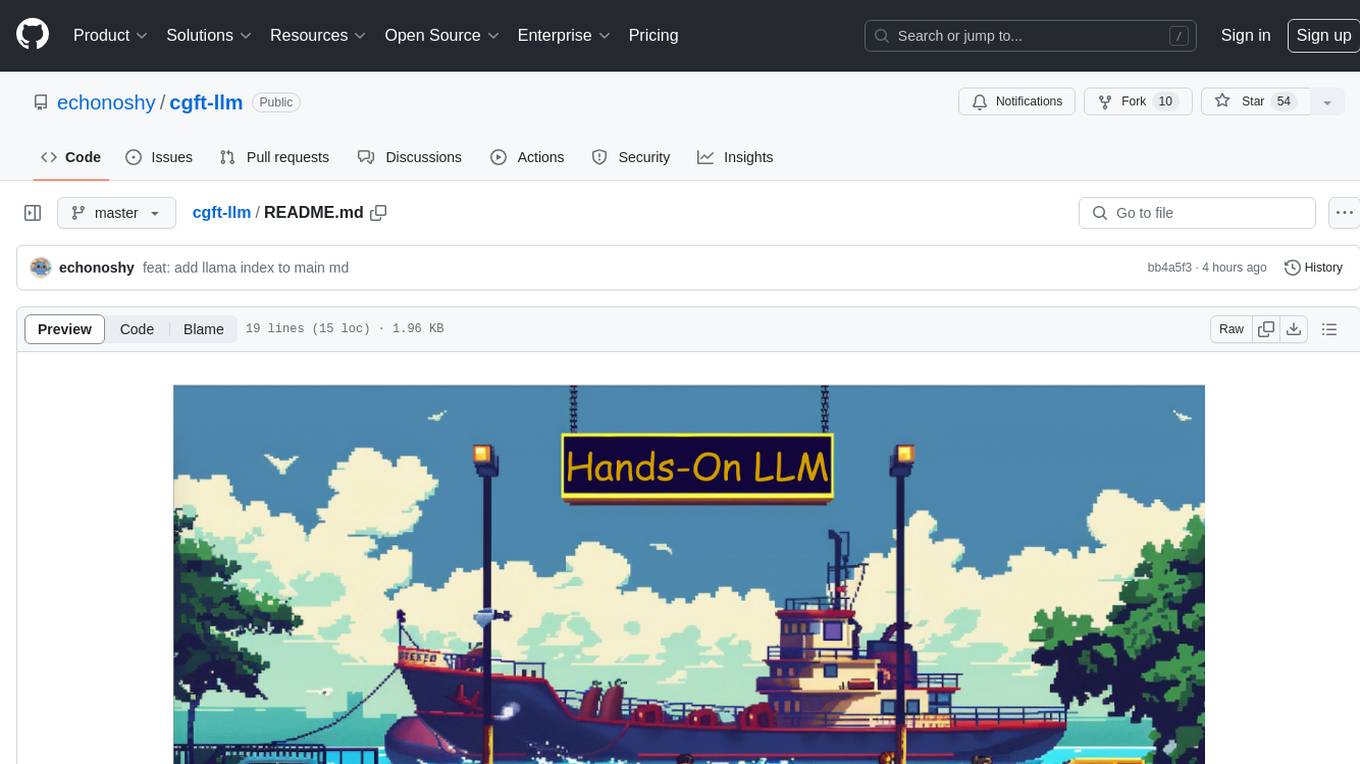
cgft-llm
The cgft-llm repository is a collection of video tutorials and documentation for implementing large models. It provides guidance on topics such as fine-tuning llama3 with llama-factory, lightweight deployment and quantization using llama.cpp, speech generation with ChatTTS, introduction to Ollama for large model deployment, deployment tools for vllm and paged attention, and implementing RAG with llama-index. Users can find detailed code documentation and video tutorials for each project in the repository.
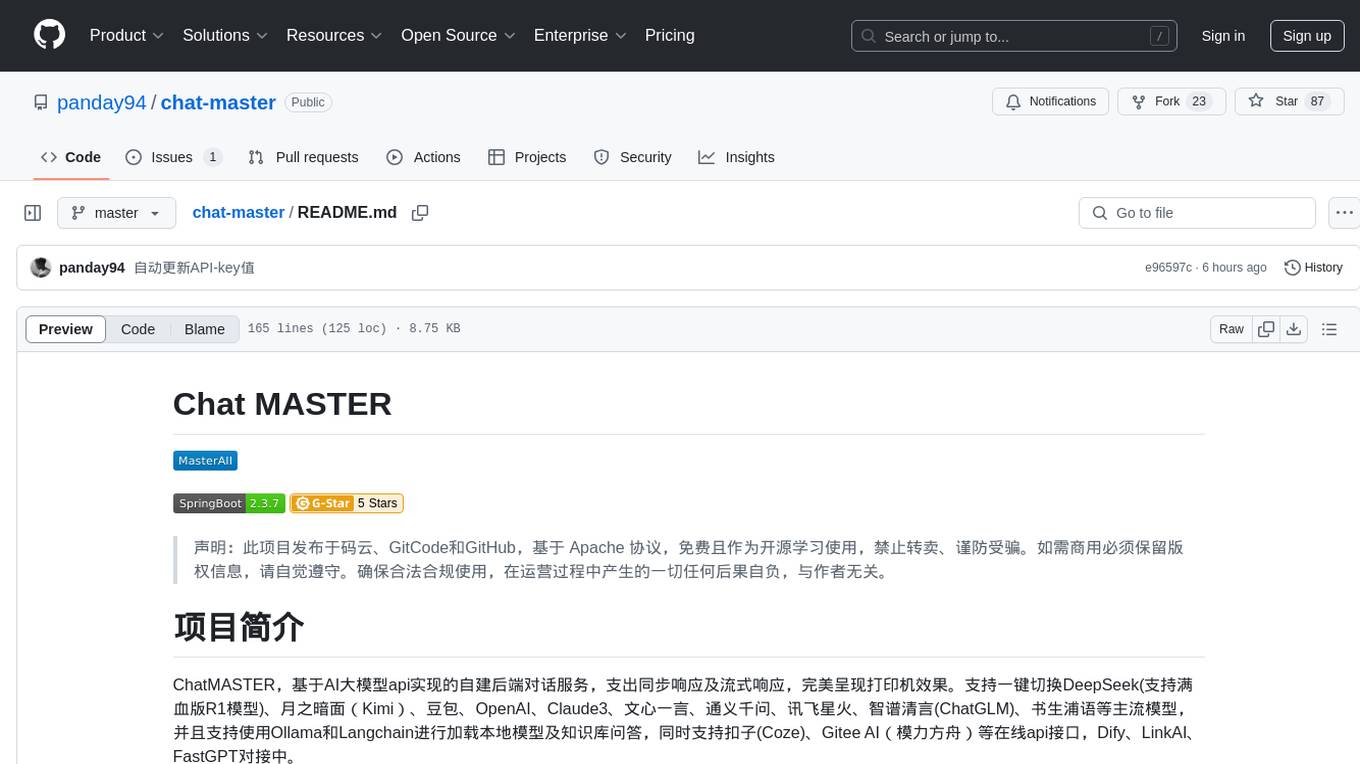
chat-master
ChatMASTER is a self-built backend conversation service based on AI large model APIs, supporting synchronous and streaming responses with perfect printer effects. It supports switching between mainstream models such as DeepSeek, Kimi, Doubao, OpenAI, Claude3, Yiyan, Tongyi, Xinghuo, ChatGLM, Shusheng, and more. It also supports loading local models and knowledge bases using Ollama and Langchain, as well as online API interfaces like Coze and Gitee AI. The project includes Java server-side, web-side, mobile-side, and management background configuration. It provides various assistant types for prompt output and allows creating custom assistant templates in the management background. The project uses technologies like Spring Boot, Spring Security + JWT, Mybatis-Plus, Lombok, Mysql & Redis, with easy-to-understand code and comprehensive permission control using JWT authentication system for multi-terminal support.
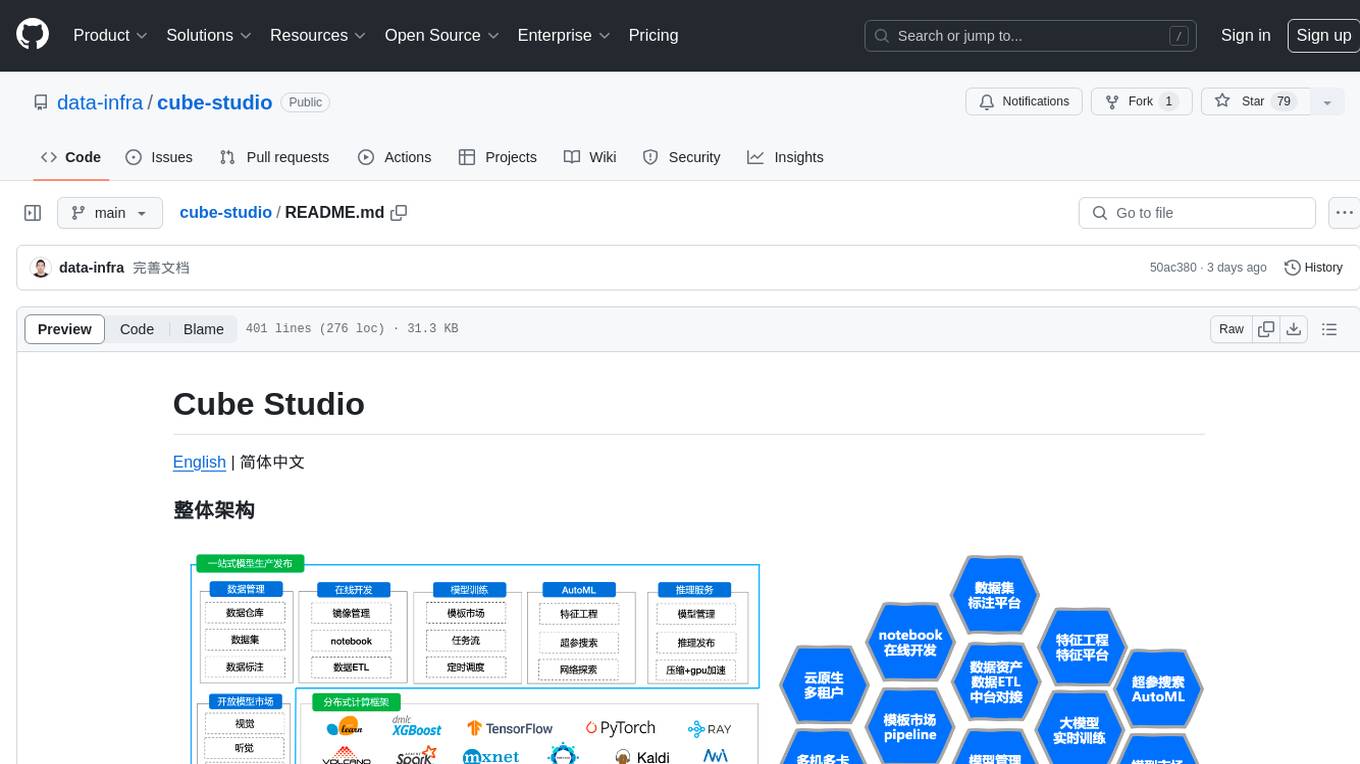
cube-studio
Cube Studio is an open-source all-in-one cloud-native machine learning platform that provides various functionalities such as project group management, network configuration, user management, role management, billing functions, SSO single sign-on, support for multiple computing power types, support for multiple resource groups and clusters, edge cluster support, serverless cluster mode support, database storage support, machine resource management, storage disk management, internationalization capabilities, data map management, data calculation, ETL orchestration, data set management, data annotation, image/audio/text dataset support, feature processing, traditional machine learning algorithms, distributed deep learning frameworks, distributed acceleration frameworks, model evaluation, model format conversion, model registration, model deployment, distributed media processing, custom operators, automatic learning, custom training images, automatic parameter tuning, TensorBoard jobs, internal services, model management, inference services, monitoring, model application management, model marketplace, model development, model fine-tuning, web model deployment, automated annotation, dataset SDK, notebook SDK, pipeline training SDK, inference service SDK, large model distributed training, large model inference, large model fine-tuning, intelligent conversation, private knowledge base, model deployment for WeChat public accounts, enterprise WeChat group chatbot integration, DingTalk group chatbot integration, and more. Cube Studio offers template-based functionality for data import/export, data processing, feature processing, machine learning frameworks, machine learning algorithms, deep learning frameworks, model processing, model serving, monitoring, and more.
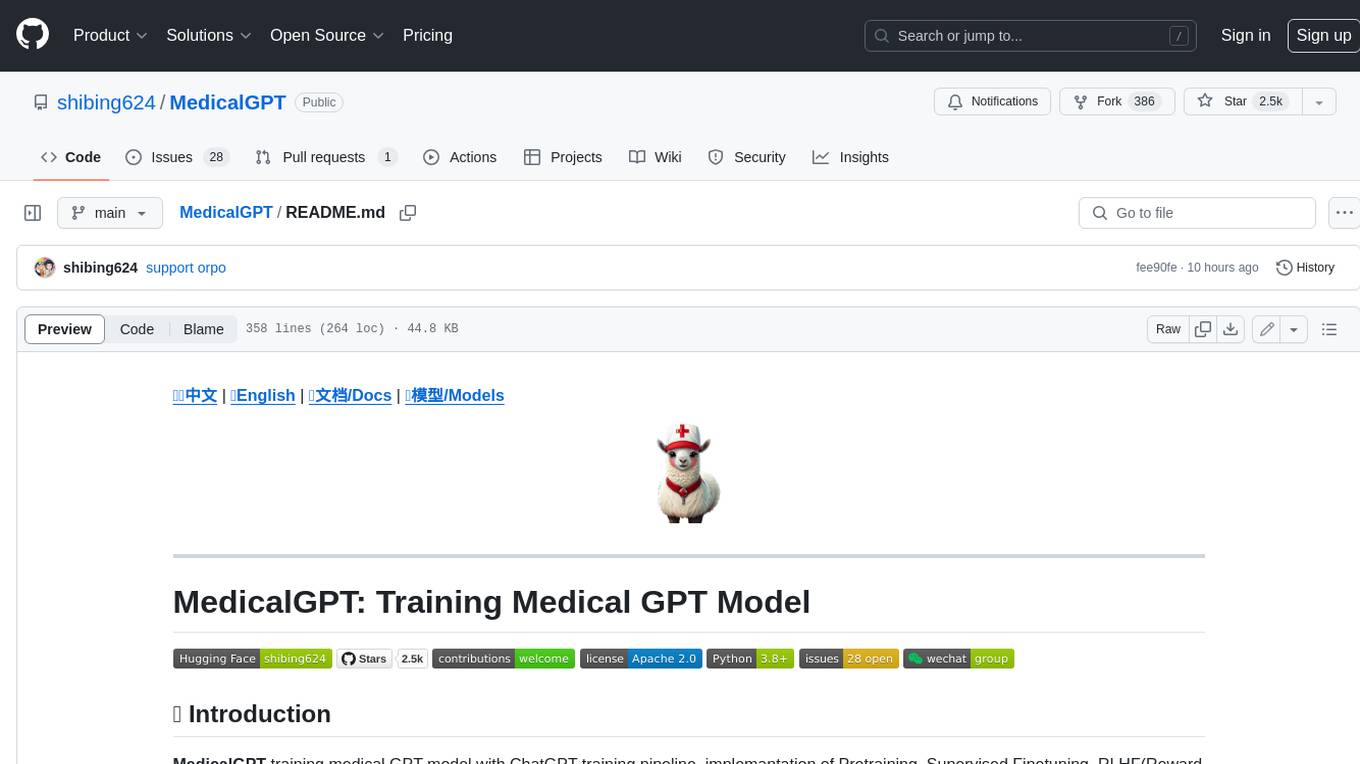
MedicalGPT
MedicalGPT is a training medical GPT model with ChatGPT training pipeline, implement of Pretraining, Supervised Finetuning, RLHF(Reward Modeling and Reinforcement Learning) and DPO(Direct Preference Optimization).
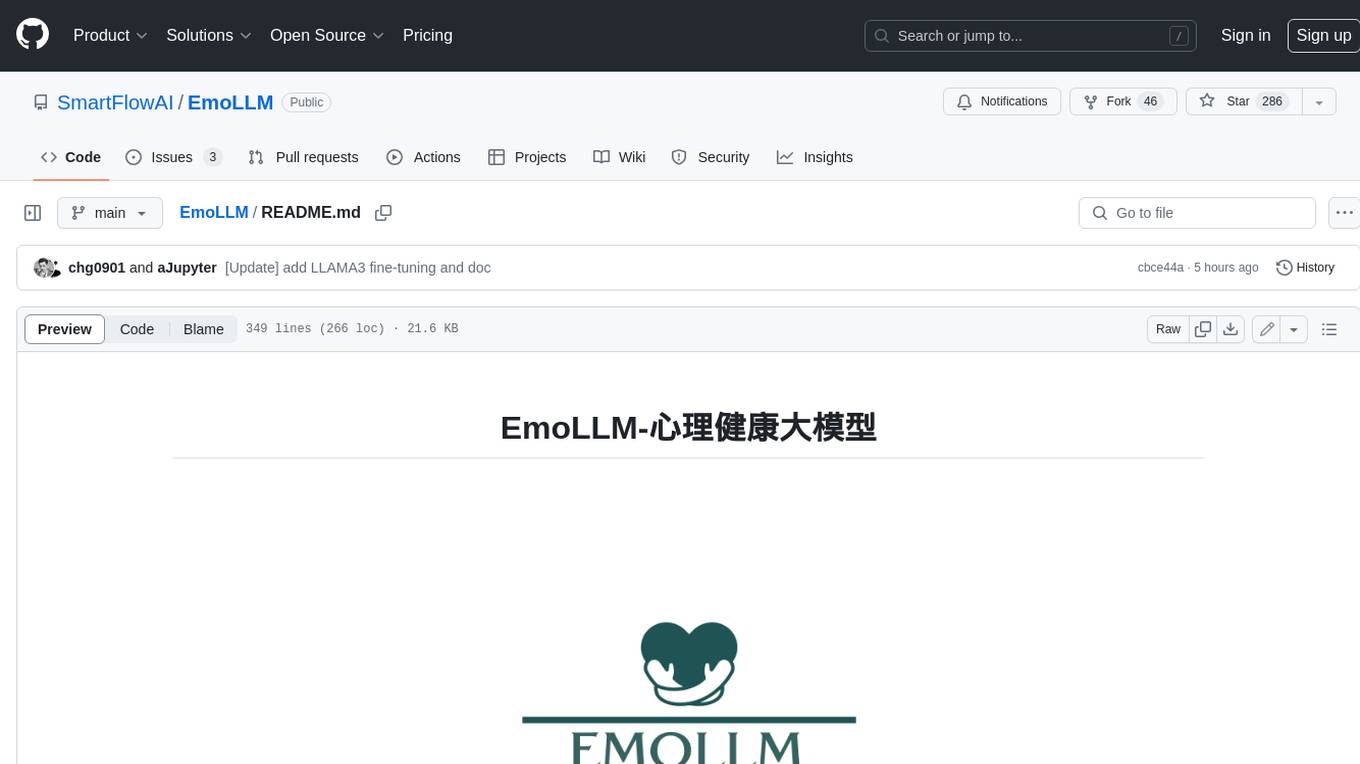
EmoLLM
EmoLLM is a series of large-scale psychological health counseling models that can support **understanding-supporting-helping users** in the psychological health counseling chain, which is fine-tuned from `LLM` instructions. Welcome everyone to star~⭐⭐. The currently open source `LLM` fine-tuning configurations are as follows:
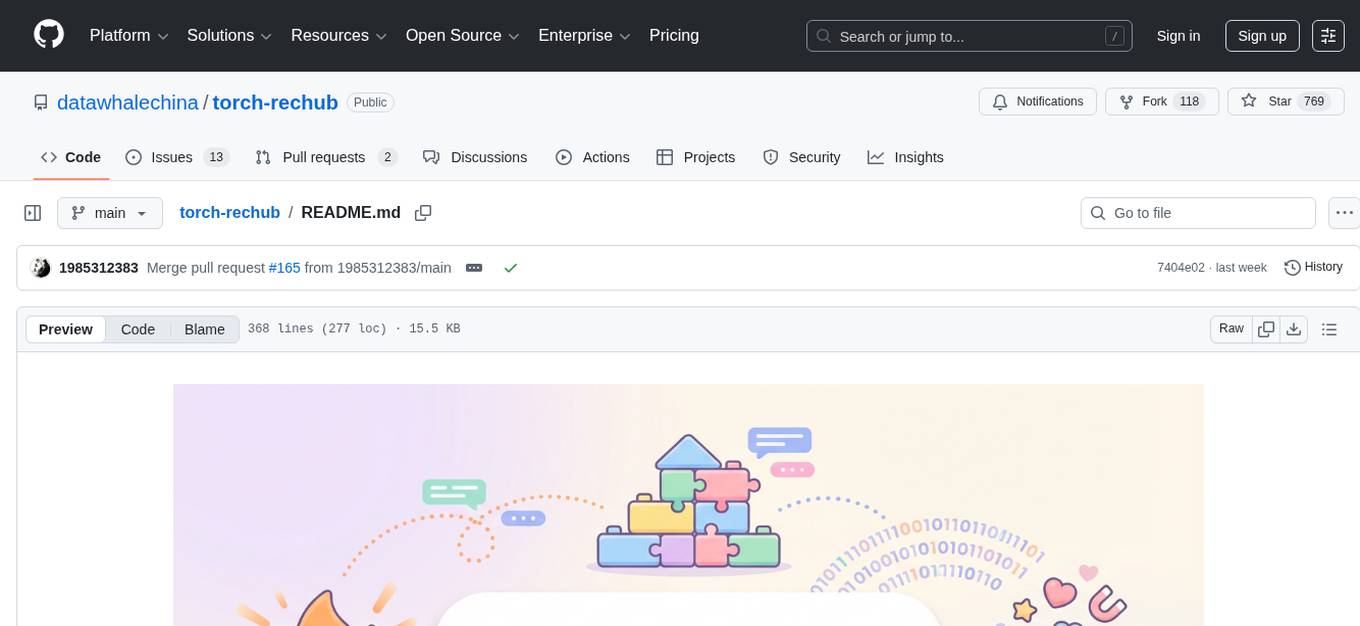
torch-rechub
Torch-RecHub is a lightweight, efficient, and user-friendly PyTorch recommendation system framework. It provides easy-to-use solutions for industrial-level recommendation systems, with features such as generative recommendation models, modular design for adding new models and datasets, PyTorch-based implementation for GPU acceleration, a rich library of 30+ classic and cutting-edge recommendation algorithms, standardized data loading, training, and evaluation processes, easy configuration through files or command-line parameters, reproducibility of experimental results, ONNX model export for production deployment, cross-engine data processing with PySpark support, and experiment visualization and tracking with integrated tools like WandB, SwanLab, and TensorBoardX.
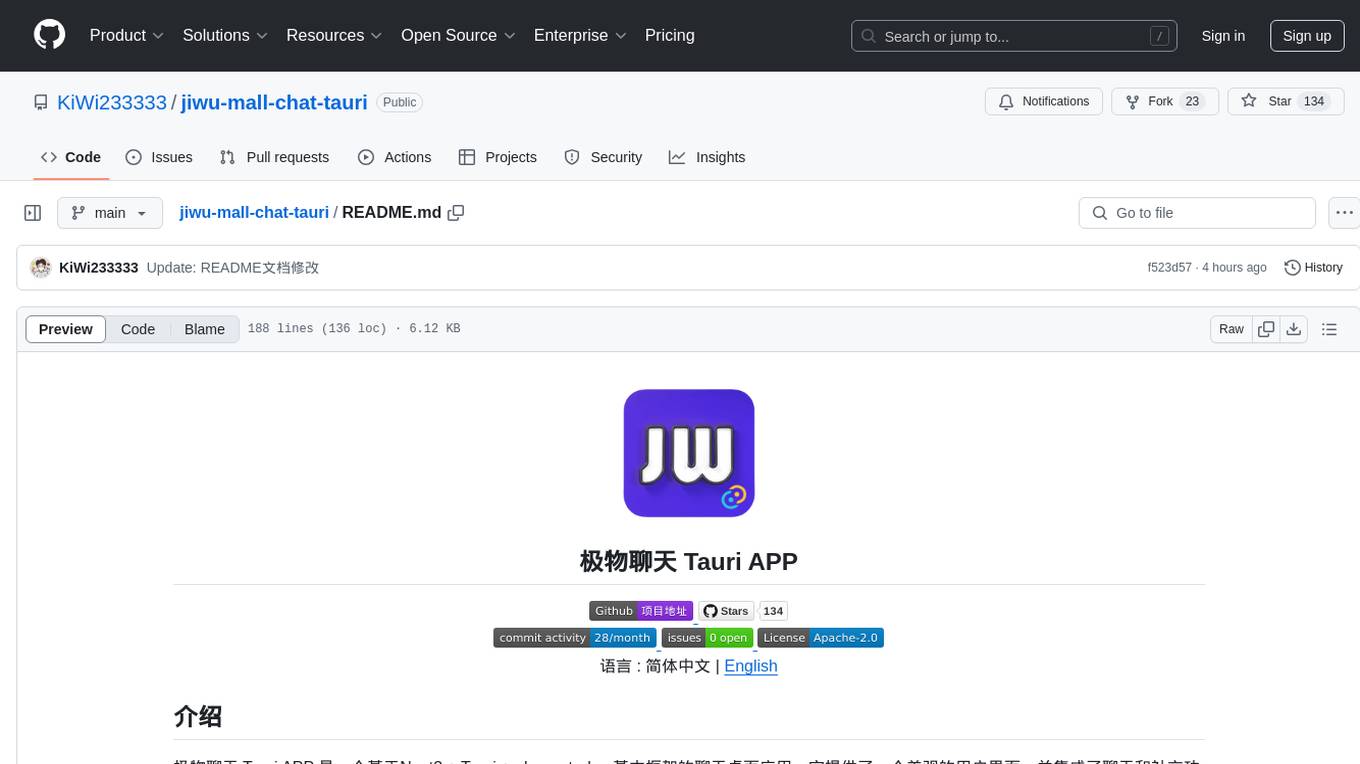
jiwu-mall-chat-tauri
Jiwu Chat Tauri APP is a desktop chat application based on Nuxt3 + Tauri + Element Plus framework. It provides a beautiful user interface with integrated chat and social functions. It also supports AI shopping chat and global dark mode. Users can engage in real-time chat, share updates, and interact with AI customer service through this application.
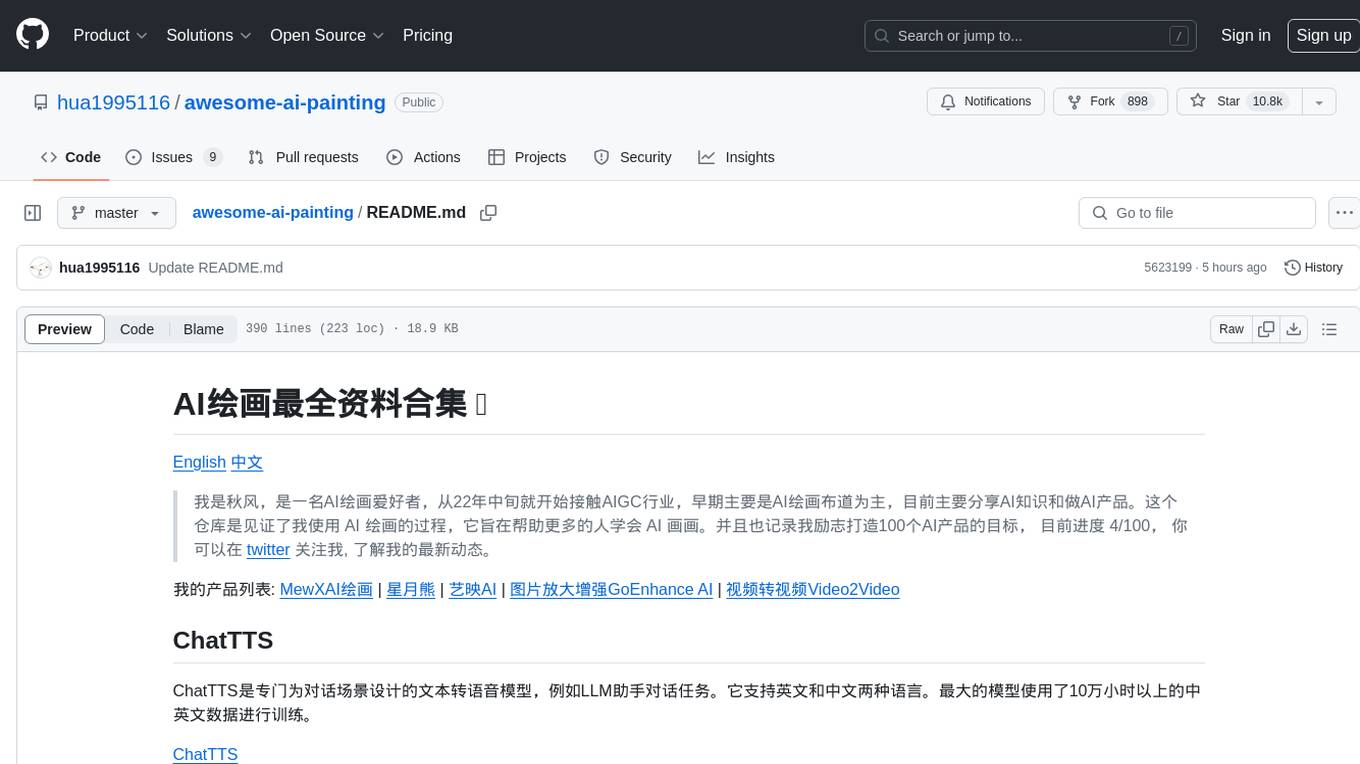
awesome-ai-painting
This repository, named 'awesome-ai-painting', is a comprehensive collection of resources related to AI painting. It is curated by a user named 秋风, who is an AI painting enthusiast with a background in the AIGC industry. The repository aims to help more people learn AI painting and also documents the user's goal of creating 100 AI products, with current progress at 4/100. The repository includes information on various AI painting products, tutorials, tools, and models, providing a valuable resource for individuals interested in AI painting and related technologies.
For similar tasks

widgets
Widgets is a desktop component front-end open source component. The project is still being continuously improved. The desktop component client can be downloaded and run in two ways: 1. https://www.microsoft.com/store/productId/9NPR50GQ7T53 2. https://widgetjs.cn After cloning the code, you need to download the dependency in the project directory: `shell pnpm install` and run: `shell pnpm serve`
For similar jobs

weave
Weave is a toolkit for developing Generative AI applications, built by Weights & Biases. With Weave, you can log and debug language model inputs, outputs, and traces; build rigorous, apples-to-apples evaluations for language model use cases; and organize all the information generated across the LLM workflow, from experimentation to evaluations to production. Weave aims to bring rigor, best-practices, and composability to the inherently experimental process of developing Generative AI software, without introducing cognitive overhead.

ChatFAQ
ChatFAQ is an open-source comprehensive platform for creating a wide variety of chatbots: generic ones, business-trained, or even capable of redirecting requests to human operators. It includes a specialized NLP/NLG engine based on a RAG architecture and customized chat widgets, ensuring a tailored experience for users and avoiding vendor lock-in.

agentcloud
AgentCloud is an open-source platform that enables companies to build and deploy private LLM chat apps, empowering teams to securely interact with their data. It comprises three main components: Agent Backend, Webapp, and Vector Proxy. To run this project locally, clone the repository, install Docker, and start the services. The project is licensed under the GNU Affero General Public License, version 3 only. Contributions and feedback are welcome from the community.

LLMStack
LLMStack is a no-code platform for building generative AI agents, workflows, and chatbots. It allows users to connect their own data, internal tools, and GPT-powered models without any coding experience. LLMStack can be deployed to the cloud or on-premise and can be accessed via HTTP API or triggered from Slack or Discord.

VisionCraft
The VisionCraft API is a free API for using over 100 different AI models. From images to sound.

autogen
AutoGen is a framework that enables the development of LLM applications using multiple agents that can converse with each other to solve tasks. AutoGen agents are customizable, conversable, and seamlessly allow human participation. They can operate in various modes that employ combinations of LLMs, human inputs, and tools.
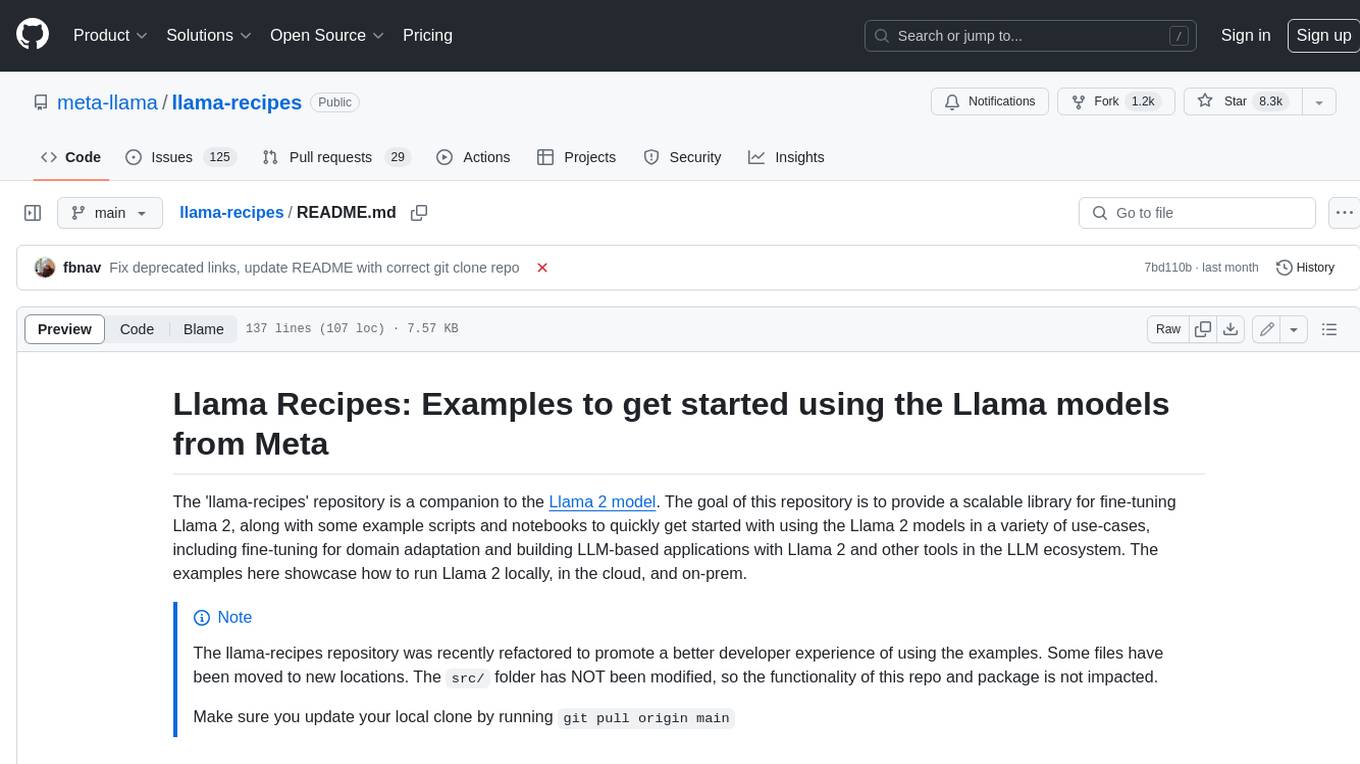
llama-recipes
The llama-recipes repository provides a scalable library for fine-tuning Llama 2, along with example scripts and notebooks to quickly get started with using the Llama 2 models in a variety of use-cases, including fine-tuning for domain adaptation and building LLM-based applications with Llama 2 and other tools in the LLM ecosystem. The examples here showcase how to run Llama 2 locally, in the cloud, and on-prem.
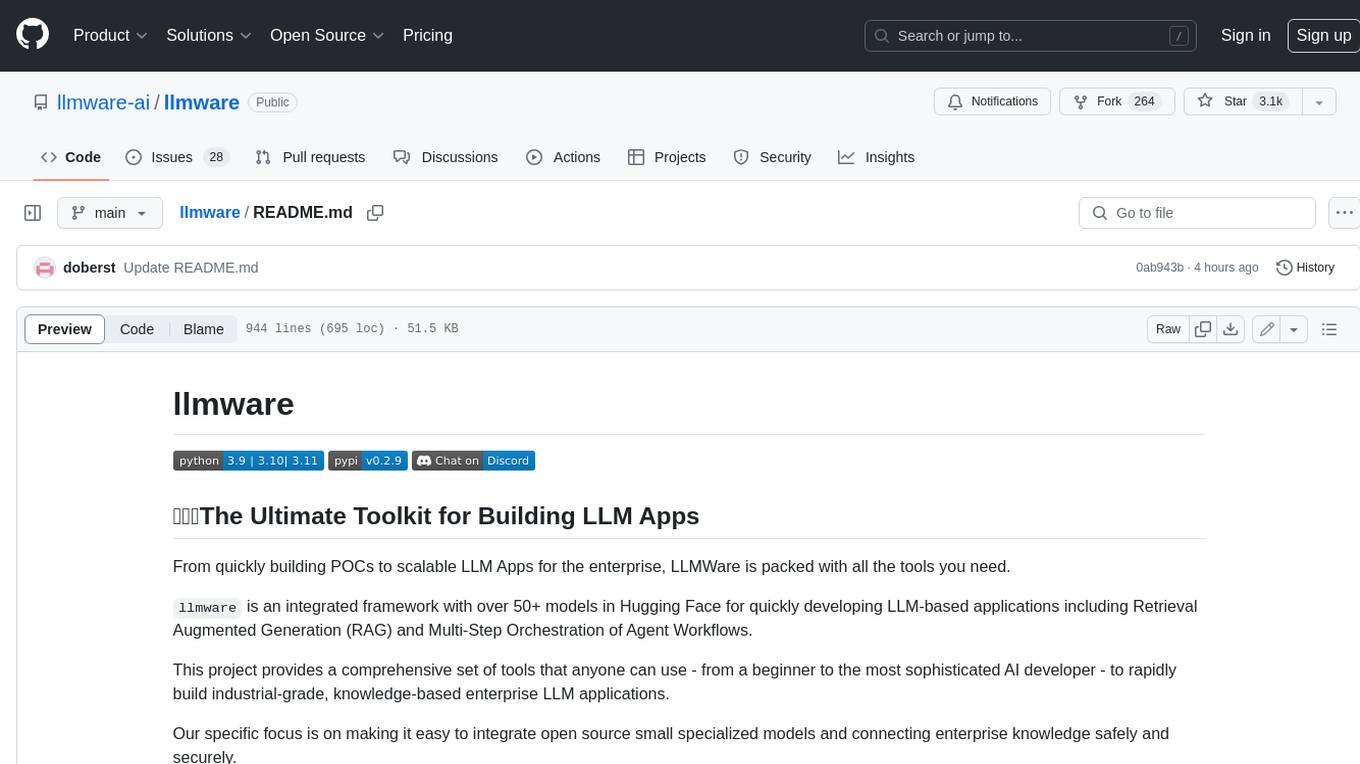
llmware
LLMWare is a framework for quickly developing LLM-based applications including Retrieval Augmented Generation (RAG) and Multi-Step Orchestration of Agent Workflows. This project provides a comprehensive set of tools that anyone can use - from a beginner to the most sophisticated AI developer - to rapidly build industrial-grade, knowledge-based enterprise LLM applications. Our specific focus is on making it easy to integrate open source small specialized models and connecting enterprise knowledge safely and securely.








